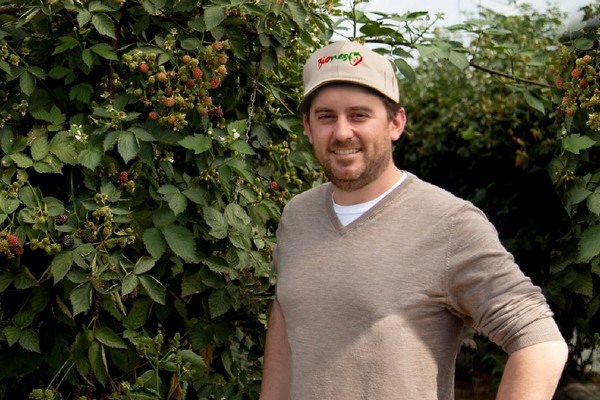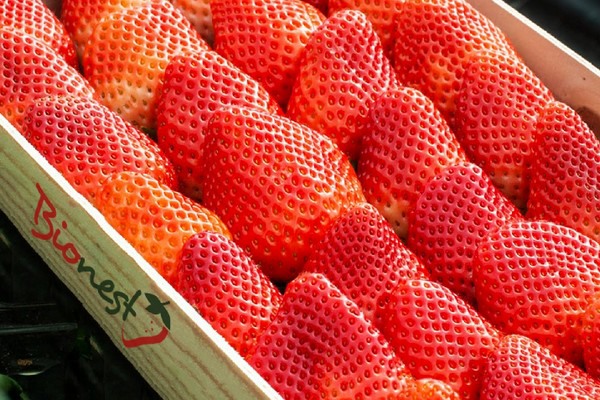The lack of profitability in recent years due to strong competition from Morocco has led to a significant reduction in the acreage devoted to conventional raspberry cultivation in Huelva. However, the organic raspberry acreage remains stable, despite restrictions on water use for irrigation in some producing areas and a notable increase in costs. With less production on the market, raspberries are reaching higher prices.
"Unlike what is happening with conventional raspberries, as long as water is available, we are keeping the organic acreage stable. And we are not doing this because of a growing consumption of organic products, as that remains slow; even more so since inflation has increased," says Thomas Cera, commercial director of Bionest, a company based in the municipality of Almonte, in the Spanish province of Huelva, which produces and markets organic berries.

"Raspberries are the berry crop that is most affected by the scarcity of water in Huelva and all of southern Spain, and restrictions on the use of water for irrigation are also leading to adjustments in the production volumes. The lower supply of raspberries this year, both in Spain and Morocco, is resulting in higher prices, necessary to cover the rising production costs for a fruit of high commercial value," he says.
Among the different varieties offered by Bionest, its Pandora raspberries, of the Pink Star club, are now growing in terms of volume. "We have been producing Pink Star for about three years. It is a club variety produced by three companies in areas of Spain, Portugal and Morocco. Now, with spring around the corner, we are going to start having a more significant production," says Thomas Cera.
The situation is the opposite for organic blueberries, of which, according to the commercial director of the company, there is "currently a significant oversupply due to the growth of the acreage in Huelva in recent years. We could see this coming. Conventional blueberries are not as affected by this, since their consumption is increasing more rapidly, as they are aimed to a wider target and their production costs are also lower."
Regarding strawberries, Thomas Cera highlighted the effort that the sector has been making over the last decade to improve fruit quality and flavor, reduce waste and limit its impact on the environment. "Now Spanish strawberries have a more mature and stable market, as well as a quality that is increasingly recognized by European consumers."

"Protectionist policies in France are a drag on the consumption of organic products"
For years, the consumption of local products has been promoted by governmental bodies in France, and this trend has intensified again this year.
"This dynamic of the French market is actually a drag on the consumption of organic products, and I say this as a Frenchman myself. It is important to support local products, but I believe that they can coexist perfectly with imported fruits and vegetables. Pursuing and eliminating imported products from the shelves is causing local organic products to become too expensive and their consumption to suffer, especially in a context of inflation like the one we are currently experiencing," says Thomas Cera.
"I believe that consumers also have the right to have access to a cheaper product. In the case of berries, Spain is starting earlier with its production, which can really help stimulate consumption before the arrival of the French productions. At the same time, we are finding that the lack of competition is causing the quality of French products to decline. It is becoming clear that this policy isn't working," says the commercial director of Bionest.
 For more information:
For more information:
Thomas Cera
Bionest
Ctra. Nac. 483 KM 22,5
21730 Almonte, Spain
T: +34 959 027 435
M: +34 648 745 297
thomas@bionest.es
www.bionest.es
